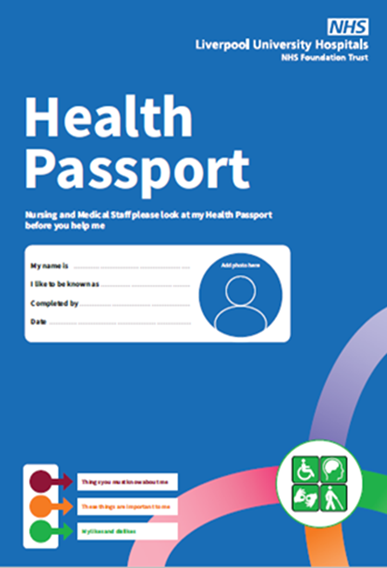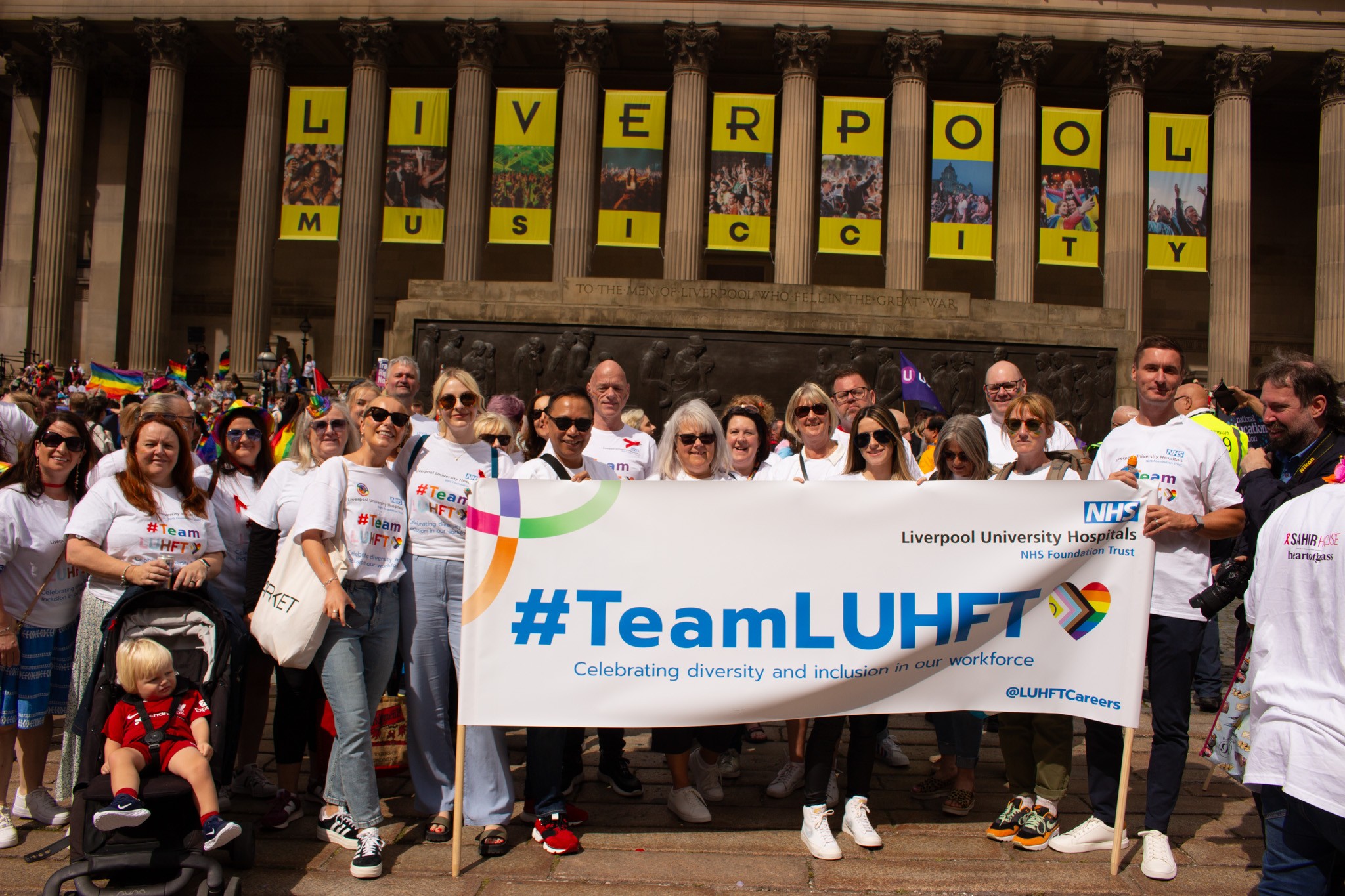At UHL Group, we’re committed to building an inclusive environment where everyone feels safe, respected and heard. However we know that unfortunately not all colleagues feel as safe and supported at work as they should. Your feedback has been clear, and we've listened.
As part of our ongoing work to improve your wellbeing support and ensure that your experience at work is the best it can be, we're focusing on how we are Creating a Safer Environment across all UHL Group sites.
Creating a Safer Environment
On these pages you can find information on support and initiatives you can access, whether that's dealing with violence and aggression, discrimination, wellbeing concerns, or other workplace challenges.
David Melia, Chief Nurse at UHL Group, said: "We have a responsibility to ensure every colleague feels safe and supported, and we know there is more work to be done. While support services exist, your feedback told us colleagues don't always know how to access them or don't feel confident help will be there. As part of our ongoing work to improve your experiences, Creating a Safer Environment aims to ensure clear, accessible pathways to support are embedded across our organisation, without barriers."
Our Safety Policies - What They Do For You
We want to ensure that when you are at work, you feel safe. To support your safety and wellbeing, there are a number of policies which provide clear frameworks designed to facilitate a safe working environment and protect colleagues. You can find more on each policy below.
- Violence Prevention & Reduction Policy - Sets out the Trust commitment and approach to providing a safe and secure environment for staff patients and visitors free from violence and abuse;
- Security Policy - Outlines the Trust’s commitment to taking security measures to maintain an active crime reduction and prevention programme throughout the organisation;
- Lone Worker Policy - Outlines procedures to ensure that any member of staff within the Trust who performs lone working as part of their role, and the manager of that individual, are aware of safety precautions, roles and responsibilities which need to be adhered prior to and during the course of any period of lone working;
- Enhanced Observation Policy - Relates to patients who are being cared for in the hospital setting who may require additional supervision to maintain their safety. This Policy is not to be confused with clinical care levels, for example, those used within the Critical Care environment;
- Wellbeing & Sickness Policy - Ensures a consistent approach to the management of sickness absence and offer staff support to achieve an appropriate level of attendance. There is a clear link between a healthy and engaged staff and patient outcomes. It is accepted that all members of staff may at some point during their employment suffer some degree of ill health or accident. In such circumstances the Trust will endeavour to offer all reasonable assistance in facilitating the individual member of staff’s recovery from ill health and ultimately their return to work;
- Social Media Policy - This policy is provided so that Trust employees and third parties that are engaged with the Trust, are aware of their personal responsibilities for appropriate use of social media.
Security Support
1. Your Security Team
The Security Team operates 24 hours a day across all UHL Group sites to protect staff, patients and visitors. Our uniformed security officers provide vital support and protection throughout the organisation.
- Royal Liverpool University Hospital has Security Supervisors, CCTV operators, desk officers and patrol response officers. A Police Officer is also present on Friday and Saturday nights from 22:00 to 06:00.
- Aintree University Hospital operates with Security Supervisors, CCTV operators, Tower reception officers and patrol response officers. A Police Officer provides additional support on Friday and Saturday nights from 22:00 to 06:00.
- Broadgreen Hospital has CCTV desk operators and patrol officers, with additional support provided through a mutual aid agreement with Liverpool Heart and Chest Hospital security.
- Liverpool Women’s University Hospital has CCTV desk operators and patrol officers.

Photo: Aintree Security Team won Team of the Month Award - June 2024
Security officers handle a wide range of duties including responding to violence and aggression, assisting staff, conducting initial incident investigations, premises security, staff escorts, emergency drug issues, CCTV monitoring, assisting police, access control and managing complaints.
We work in partnership with Merseyside Police through initiatives like our monthly "Cuppa with a Copper" sessions where local officers visit our sites.
2. How to Report Security Issues
If you experience or witness violent, abusive or aggressive behaviour, we encourage colleagues to take immediate action if it is safe to do so. First, inform your line manager about what happened. You should then complete a DATIX incident report within 24 hours, as this helps us better understand our staff experiences.
When completing your DATIX report, make sure you include all the key details: exactly what happened, the time and location of the incident, any witnesses who were present, and details of any injuries you or others sustained. Your manager will automatically become the handler for your case once you submit the report.
The flowchart below shows exactly what happens after you submit your DATIX report:

Once you've submitted your report, the Security Management Team will respond to your report and give guidance in line policy to the reporter and Datix handler (your manager). They'll assess what follow-up action is needed, which might include warnings for the person involved or other protective measures. If the incident involves repeat behaviour, alerts may be placed on patient records. You have the right to appeal any decisions made about your case.
Professional Development and Safety Training
Below are listed the key programmes available to support staff in managing challenging situations with confidence and compassion.
1. Behaviours of Concern Support
Led by Ged Jennings, Learning Disability and Autism Specialist Nurse, Behaviours of Concern helps staff understand challenging behaviours such as aggression, self-harm, destructiveness and disruptiveness, often seen in patients with dementia, delirium, learning disabilities, or mental health conditions.
The project emphasises that challenging behaviours usually occur when patients have unmet needs - pain, discomfort, frustration, anxiety, boredom, or lack of stimulation. Staff learn to use helpful approaches like music and activities to comfort patients, calm communication techniques, memory activities, and personal care plans using "This is Me" documents and Health Passports.


The goal is to reduce the need for security intervention, physical restraint, sedative medication, and one-to-one enhanced care by addressing the root causes of challenging behaviour through compassionate, individualised approaches.
2. Compassionate Communication Training
Led by Dr Jane Hutton, Consultant Clinical Psychologist and Professional Lead for Psychology this short e-learning is suitable for all staff to develop a deeper understanding of why compassion is so important in healthcare, how we can sustain it in challenging times, and why it always needs to start with ourselves.
The training emphasises that compassionate communication underpins everything we do in healthcare and can improve every moment of communication. Staff learn practical skills for starting conversations on the right foot, managing difficult interactions with patients and colleagues, and maintaining empathy even when feeling overwhelmed by work pressures.
The programme covers self-care techniques to help staff stay grounded, quality communication over quantity of time, and how to respond compassionately when patients or colleagues are distressed. This complements the Challenging Behaviours approach by providing the communication skills needed to connect with patients experiencing unmet needs.
Available to all staff through ESR - search for "Compassionate Communication" to book your session.
3. IKON Personal Safety Training
To support in providing safe and compassionate care, colleagues are able to undergo a Personal Safety training programme. The ‘3 Tier Personal Safety Training Approach’ is designed to help you feel safe and confident at work:

Tier 2 – Breakaway Training: Targeted at public-facing staff, a half-day course providing simple but effective techniques for safely disengaging from aggressive situations.
Tier 3 - Managing Challenging Behaviour: A full-day course for clinical staff, focusing on the safe application of clinical holds during high-stress or difficult procedures.


Colleagues can complete Tier 1 as part of their Mandatory Training.
For Tier 2 and 3, colleagues can book face to face training sessions via the Electronic Staff Record (ESR) system. Teams are supported through bespoke sessions tailored to their working environments, making the training responsive to the challenges staff face day to day.
Full booking details can be found here.
Support Available for Colleagues
We recognises that colleagues may face various challenges both in and outside of work that can impact their wellbeing. As an organisation, we are committed to providing comprehensive support services to ensure every colleague feels safe, valued and supported.
If you have concerns about any workplace issues including violence and aggression, discrimination, domestic abuse or wellbeing challenges, support is available and we encourage colleagues to access the resources below. Please also speak with your line manager to outline what support is best for you.
Specialist Support Services
Our Specialist Domestic Abuse Practitioner supports staff who are experiencing or have experienced domestic abuse. The service provides guidance to managers, HR teams and Staff Psychologists who have concerns about affected colleagues, conducts comprehensive risk assessments with staff members, and develops both personal safety plans and workplace safety plans. When required, the practitioner works closely with HR, Security and legal teams to implement appropriate protective measures.
As a signatory organisation of the Sexual Safety Charter, UHL Group has policies in place, along with Sexual Safety in the Workplace training available (face-to-face and online) and signposting to specialist support. More information is available here.
‘Respectful Resolution’ toolkit supports colleagues experiencing bullying and harassment, helping to understand inappropriate behaviour and providing guidance on next steps for resolution, with signposting to additional support where needed.
Respectful resolution toolkit:
- Supports all colleagues across our sites, it is for anyone to use at the point of need.
- The toolkit helps colleagues to understand the impact of poor and inappropriate behaviour and to act to build a positive local culture.
- There is also guidance for those who experience or witness poor or inappropriate behaviour including bullying and harassment.
- The toolkit guides colleagues to reflect and understand what's happened and then to decide on appropriate next step to resolve a concern.
- The step taken will depend on the situation and there's signposting to support if colleagues need to access this.
- For any violence and aggression, reporting to HR will be needed and they will be able to confirm next steps for resolution using existing policy and process.
Information about the Staff Support Offer for staff employed by LUHFT is available here Life at LUHFT - Staff Support Offer :: NHS University Hospitals of Liverpool Group
Our Occupational Health and Wellbeing team are on hand to support those who need it. This can be arranged by emailing the team who can coordinate this.
Colleagues employed by LUHFT can access our Staff Psychology and Counselling Service by filling in this form.
Our Occupational Health Service team can provide a wealth of information, services and advice, including staff physiotherapy and support with Display Screen Equipment. You can find out more on the website.
Escalating Concerns or Incidents
Please escalate any workplace concerns immediately with your line manager, or alternatively contact:
- Site leadership team members – More info can be found here
- Freedom to Speak Up Service – For support when raising concerns, issues or incidents, or if concerns haven't been followed up on or resolved:
- LUHFT sites: Lorraine Heaton (Freedom to Speak Up Guardian) – lorraine.
heaton | 0151 706 2843 | 07794 071021.@liverpoolft.nhs.uk - LWH site: Sarah Kirkbride (sarah.
kirkbride | 07976 583588) and Srinivasarao Babarao (Srinivasarao.@lwh.nhs.uk babarao | 07976 583588). Both can be reached at F2SUG@lwh.nhs.uk @lwh.nhs.uk - Note: You can contact any Champion at any site for support, regardless of where you are based. More information on the Champion role and who your Champions are can be found here. More info about the ‘Freedom to Speak Up’ Service can be found here.
- LUHFT sites: Lorraine Heaton (Freedom to Speak Up Guardian) – lorraine.

- Equality, Diversity and Inclusion Leads – please contact Charlotte and Tracey
- Staff Network Leads – More info can be found here
For incidents outside the organisation, report to Merseyside Police and access community support organisations available in Liverpool.

